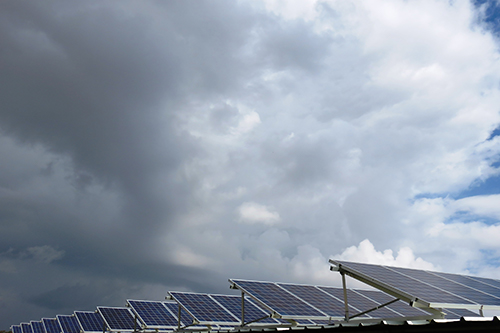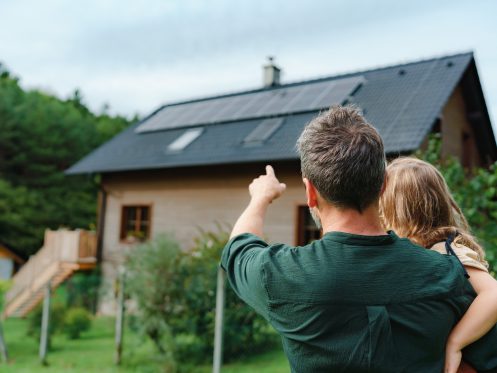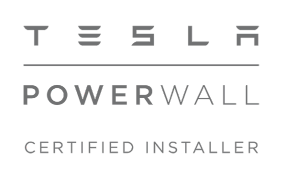Updated: March 25, 2024
Solar panels are by far one of the best investments you can make in your home and will provide a great return on your investment. When installed correctly and well maintained, solar panels are almost guaranteed to pay for themselves over time by saving you money on your electricity bills each month. For homeowners concerned about how well they work under certain conditions such as cloudy weather or during the winter, we created this guide to explain how they work in cloudy weather and under other conditions.
How Clouds Affect Solar Power Generation
The truth is that solar panels generate the most electricity when the sunlight directly hits them. This is why the direction that the solar panels face is important for ensuring that they receive as many hours of direct sunlight during the day as possible. In the U.S. and the rest of the northern hemisphere, solar panels work best when facing directly south, so t they receive direct sunlight throughout most of the day.
Solar panels obviously won’t work at night, and many people mistakenly believe that they also won’t work in cloudy conditions. On partly or mostly cloudy days, some sunlight will still get through and hit the solar panels. The amount of power the panels generate does decrease the cloudier it is, but the panels will still usually operate at least 10 to 25% of their normal capacity.
How Rain Affects Solar Panels

Solar panels will also work during rainy weather as long as the clouds aren’t too thick for the sunlight to penetrate through. Rain is actually a good thing for solar panels as it helps to wash off most of the dirt, dust, and debris. When solar panels are dirty, their power-generating capability is decreased since all of the dirt and dust will block out some of the sunlight just like clouds do. This is why solar panels need to be cleaned periodically to ensure they continue working effectively.
How Solar Panels Work in Cold Conditions
Another common misconception many people have is that solar panels produce electricity due to the heat from the sunlight and that they won’t work when it’s cold outside. This isn’t the case as it is the photons in the light itself that allows solar panels to generate electricity. When the photons hit solar panels, they excite the electrons in the panel so that they produce an electrical current and generate energy.
How Solar Battery Storage Can Keep Your Home Powered on Overcast Days
If you’re going to install solar panels, we would highly recommend you also install a battery storage system. Without battery storage, any excess power the panels produce that isn’t immediately used will flow out of the home and back into the grid. This means you’ll still need to rely on the grid at night and on the very few days when it is too overcast for the panels to produce electricity. Battery storage will greatly reduce your reliance on the grid by storing any excess power so that it can then be used whenever the panels aren’t producing electricity.
If you’re looking to upgrade your home in South Central Texas with solar power, GVEC Solar Services is ready to help. We have years of experience designing, installing and maintaining solar panels and battery storage systems.
Give us a call today for all of your solar power needs!



